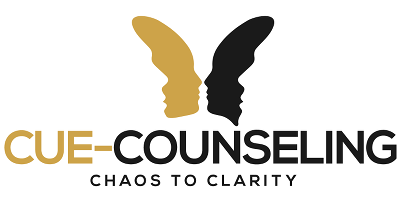Understanding Neurodivergence: Support, Strengths, and Resources
From a Neurodivergent Therapist at Cue Counseling
As someone who is neurodivergent, works with neurodivergent clients, and supports neurodivergent families, I want to take a moment to explain what neurodivergence means — and more importantly, how you or your loved ones can access meaningful support and resources through neurodiversity-affirming counseling.
What Does “Neurodivergent” Mean?
The term neurodivergent refers to individuals whose brains function differently from what is considered “neurotypical” or standard. This includes, but is not limited to, individuals who are Autistic, have ADHD, or live with other cognitive differences such as dyslexia, sensory processing differences, or Tourette’s.
These differences in brain wiring create both strengths and challenges that are unique to each person.
Common Challenges May Include:
-
Social communication difficulties
-
Trouble with organization, planning, or task initiation
-
Rigid or literal thinking patterns
-
Co-occurring anxiety or depression
-
Sensory sensitivities (light, sound, texture, etc.)
-
Difficulty processing language or emotions
-
Discomfort with eye contact
Common Strengths May Include:
-
Intense focus and expertise in specific interest areas
-
High creativity and unique problem-solving abilities
-
Above-average intelligence or insight
-
Deep empathy and authenticity in relationships
It’s important to remember: neurodivergent individuals are as varied as any other group of people. No two Autistic or ADHD individuals are exactly alike, and their needs should be approached with flexibility and understanding.
Counseling Support for Neurodivergent Individuals and Families
At Cue Counseling, I offer neurodiversity-affirming therapy tailored to children, teens, and adults who identify as neurodivergent. Therapy can help neurodivergent clients:
-
Navigate a neurotypical world with less stress
-
Manage emotional regulation and executive functioning difficulties
-
Build self-esteem and identity affirmation
-
Learn tools for communication and social connection
-
Explore their strengths without masking who they are
Family Support and Psychoeducation
I also offer psychoeducational sessions for family members to help them better understand the unique needs of their neurodivergent loved ones. These sessions focus on:
-
Clarifying how neurodivergent brains process the world
-
Reducing stress and conflict at home
-
Building strategies for effective, affirming support
-
Encouraging family-wide communication and compassion
Social Opportunities and Group Support
Peer connection matters. Neurodivergent individuals often feel isolated in environments that don’t accommodate their needs.
That’s why I’m launching a group for Autistic Young Adults starting late August or early September. This group will:
-
Provide a space for meaningful conversations
-
Explore real-life challenges and personal identity
-
Use games and shared interests to foster connection
-
Allow participants to socialize comfortably with others who understand them
Curious If You or a Loved One May Be Neurodivergent?
If you’re beginning to explore the possibility that you or someone close to you may be neurodivergent, I encourage you to seek professional guidance. A trained therapist can help provide clarity, direction, and support that honors your experiences without judgment.
You are welcome to reach out to Cue Counseling at (863) 937-3943 to learn more about available services and next steps. Whether you’re newly diagnosed, self-identifying, or supporting a loved one, you’re not alone — and support is here when you’re ready.
